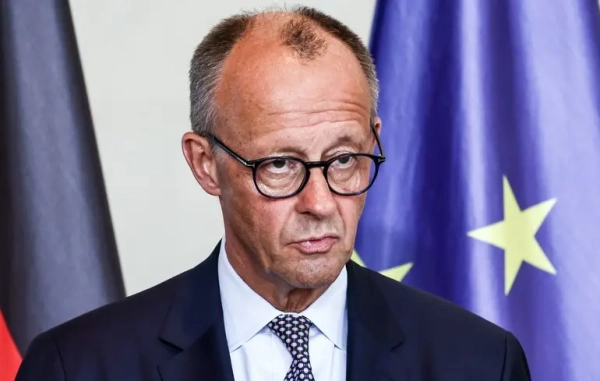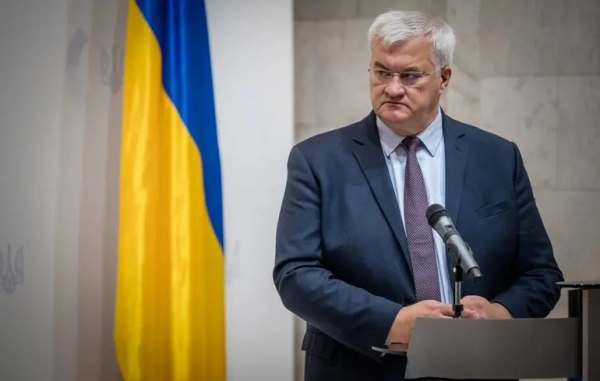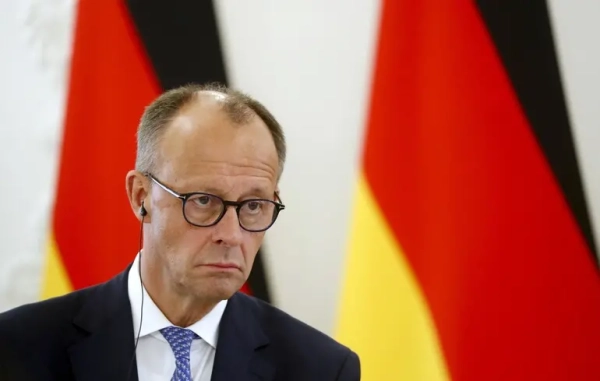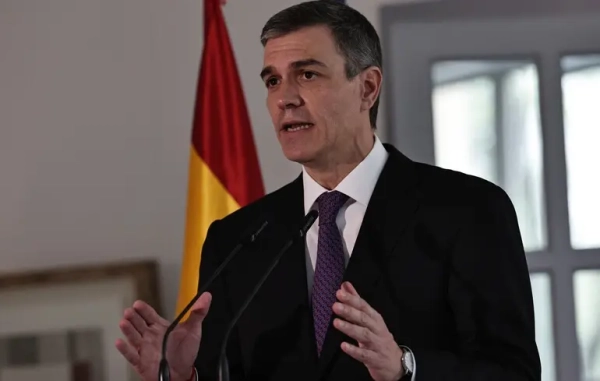
© EPA/FILIP SINGER Experts emphasize that it is not difficult to find the reasons why Merz became the main target.
German Chancellor Friedrich Merz has been accused of allegedly killing a female polar bear and her two cubs while hunting in Canada, according to a fake news story that circulated this summer.
The fabricated story appeared in the fake Toronto Journal after Merz visited Canada for the G7 summit in June. Along with a photo of a bloodied bear and a grim depiction of the politician, it was purportedly accompanied by eyewitness accounts of a “senseless massacre” of a family of polar bears, Politico reports.
The fabricated story is just one example of a growing wave of Russian disinformation aimed at European leaders, including German Chancellor Friedrich Merz, who, after only four months in office, quickly became a key target of the Russian campaign because of his unwavering support for Ukraine, experts and intelligence agencies say.
“Germany is a special object of attention. Russia is able to quickly and flexibly pick up on events in Germany and use them to achieve its goals in the information space. What is striking is not only the speed and adaptability of this system, but also the fact that it is designed for the long term,” said a representative of Western intelligence.
Pablo Maristani de las Casas, an analyst at the Institute for Strategic Dialogue (ISD), which specializes in disinformation, added that “because of his very outspoken support for Ukraine — the way he has managed to mobilize the international community in favor of Kyiv and openly opposes Russia — these campaigns are increasingly directed against Merz.”
A stream of false messages regularly appears on fake news sites, where they are often mixed with real materials copied from reliable sources, and then distributed through a network of pro-Kremlin influencers.
In the case of the fictional story about the polar bear, this information was spread by pro-Kremlin blogger Alina Lipp, who was subjected to European Union sanctions in May for spreading “Russia's destabilizing actions abroad.”
“The topic of hunting is not new to Russian disinformation campaigns. In the run-up to the 2024 US presidential election, one fake story claimed that Democratic candidate Kamala Harris had allegedly shot an endangered rhinoceros during a trip to Africa. While Russia continues to push fabricated narratives about the war in Ukraine to influence American policy, the focus since the election has shifted to discrediting European leaders,” Politico reports.
Several campaigns against Merz have been linked to the pro-Russian disinformation network Storm-1516, which creates sophisticated operations involving fake evidence, fake websites, and videos generated by artificial intelligence.
In the previous German government led by Chancellor Olaf Scholz, the target of Russian disinformation was more often his coalition partners, the Green Party, which actively advocated for increased military assistance to Ukraine.
However, Merz became a prime target as soon as he emerged as the frontrunner to replace Scholz. Pro-Kremlin campaigns began to portray him as unstable and unfit for power due to an alleged mental illness. One fake story claimed that Merz suffered from “emotionally unstable personality disorder” and attempted suicide in 2017, even forging “medical documents.”
His relative unpopularity at home also makes him a convenient target for the Kremlin. According to the latest ARD Deutschlandtrend poll, support for Merz’s government has fallen to a record low of 22 percent, and only 26 percent of respondents called the chancellor trustworthy, as a previous survey showed.
While no single fake story has significantly affected Merz's government, the pro-Kremlin stream of disinformation is aimed at gradually undermining his authority while simultaneously strengthening his main opponents, the far-right Alternative for Germany (AfD), which is closing in on Merz's conservatives in the polls and advocates a much more accommodating policy toward Moscow.
German authorities have virtually no effective mechanisms to counter these campaigns, partly due to data protection laws and a lack of coordination and information exchange between federal and state bureaucracies, notes Stefan Meister of the German Council on Foreign Relations.
Recall that the trip of French President Emmanuel Macron, German Chancellor Friedrich Merz, British Prime Minister Keir Starmer, and Polish Prime Minister Donald Tusk to Kyiv caused a wave of rumors after a video from a night train appeared. Social networks began to spread allegations of alleged drug use by European leaders, in particular due to the “white bag” and “spoon” seen in the footage.
The accusations, which were widely broadcast, including by Russian Foreign Ministry spokeswoman Maria Zakharova, were denied by the media, which published high-resolution photos and videos.






